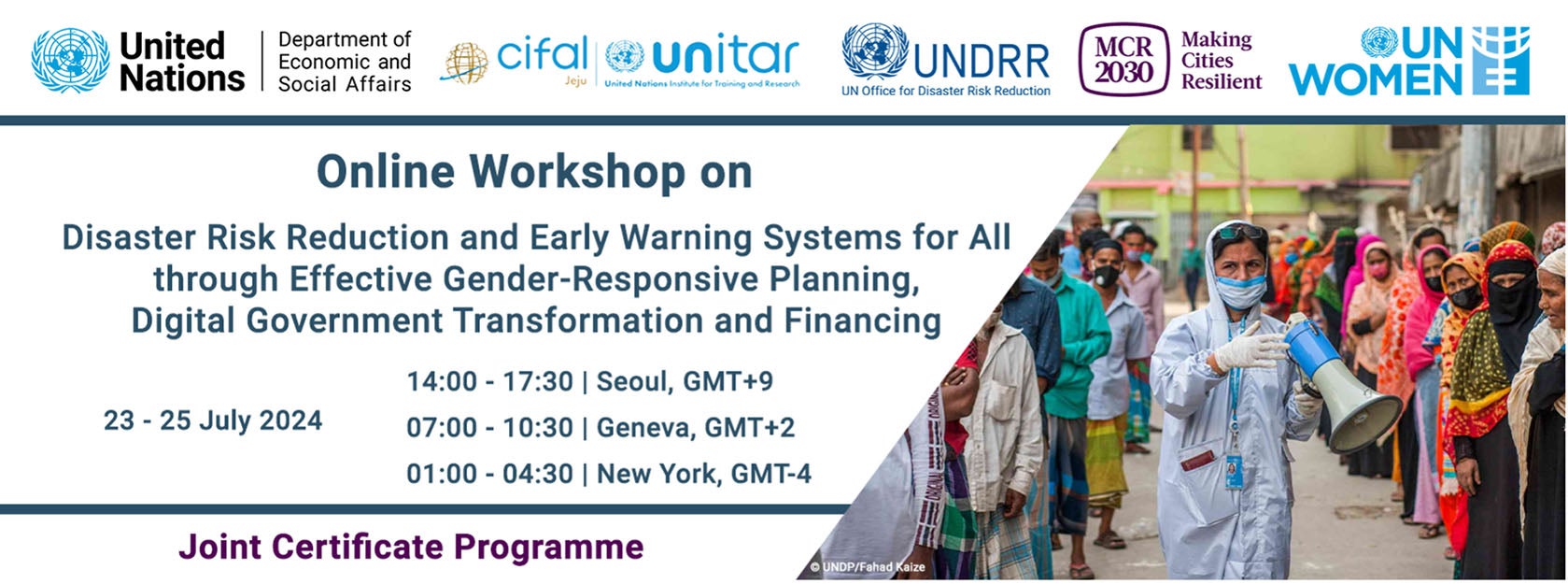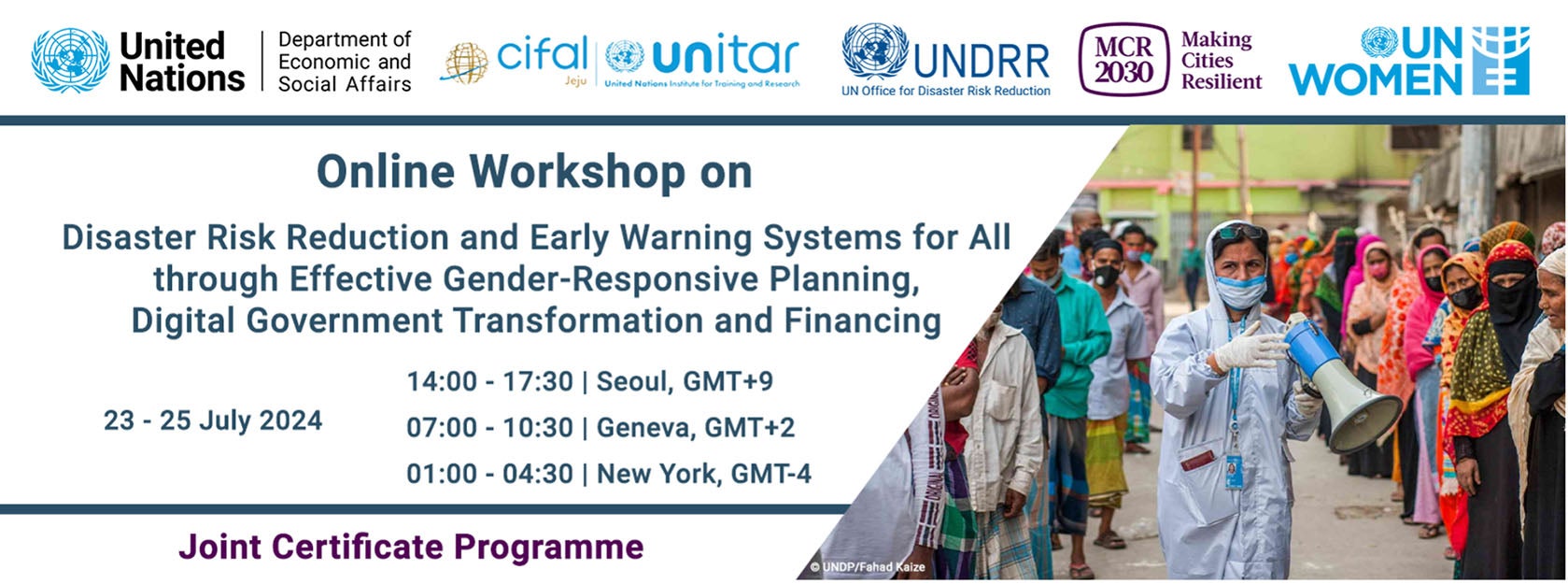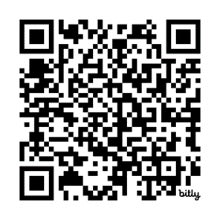
Online Workshop on Disaster Risk Reduction and Early Warning Systems

Event description
Date: 23-25 July 2024
Start date: 23 July 2024 | 14:00 GMT+9
End date: 25 July 2024 | 17:30 GMT+9

Background
The 2030 Agenda for Sustainable Development emphasizes disaster risk reduction (DRR) as crucial for achieving the Sustainable Development Goals (SDGs). It proposes commitments to reduce risk, build capacity, and promote disaster resilience. The Sendai Framework for Disaster Risk Reduction 2015-2030, aligned with this agenda, calls for risk-informed governance and people-centered, multi-hazard early warning systems (MHEWS) to improve disaster preparedness.
The Gender Action Plan to support the Sendai Framework was launched on March 18, 2024. It aims to enhance gender-responsive DRR and reduce gender-related disaster risks by 2030. It outlines nine objectives and 33 actions to promote gender equality in DRR.
The 2023 Midterm Review of the Sendai Framework highlighted gaps in global multi-hazard warning systems. The Political Declaration called for investment in people-centered MHEWS, and the UN's Early Warnings for All initiative aims for universal coverage by 2027.
In today's economic downturns, climate change, and technological progress, digital government transformation for Early Warning Systems (EWS) is critical. The shift towards prevention-oriented planning and innovative financing for resilient communities is ongoing. Studies show women and girls are most affected by disasters, and gender considerations in EWS are essential for effective mitigation and response.
The UN's Global Early Warnings for All Initiative (2023-2027) seeks to establish life-saving early warning systems by 2027, focusing on small island developing states (SIDS) and least-developed countries (LDCs). This initiative supports climate justice, the Paris Agreement, and the Sendai Framework, contributing to multiple 2030 Agenda goals. Integrating gender perspectives and digital solutions into DRR policies is vital for addressing the needs of diverse demographic groups.
Event description
The workshop will be online for three days, each session/ day covering the following subjects and themes.
Session 1: Setting the Scene: Disaster Risk Reduction and Gender-responsive Early Warning and Early Action
This session introduces fundamental concepts of gender-responsive multi-hazard early warning systems (MHEWS) in the context of disaster risk reduction. It covers the role of MHEWS, global policy frameworks, and tools for planning gender-responsive MHEWS. It will also present a tool for local gap assessment and planning, the Gender-responsive Early Warning & Early Action toolbox, and case studies. Participants will share experiences and engage in an interactive quiz.
Session 2: Digital Government Transformation and AI for Early Warning Systems
This session explores digital government innovation and technologies for building resilience and gender-responsive Early Warning Systems (EWS).
Part 1: Focuses on case studies and governance models using innovative technologies to enhance risk prediction and response.
Part 2: Highlights the importance of Sex, Age, and Disability Disaggregated Data (SADDD) for gender-informed decision-making in disaster risk reduction.
Session 3: Financing Framework for Disaster Risk Reduction and Early Warning Systems
This session addresses the need for financial readiness to mitigate disaster impacts, focusing on gender-responsive climate financing. It discusses international and domestic efforts to mobilize the funding for DRR and EWS, emphasizing the importance of supporting women-led initiatives for community resilience. The session also reviews the financial preparations for the 'Early Warnings for All' initiative.
View online/download:
Registration QR code
